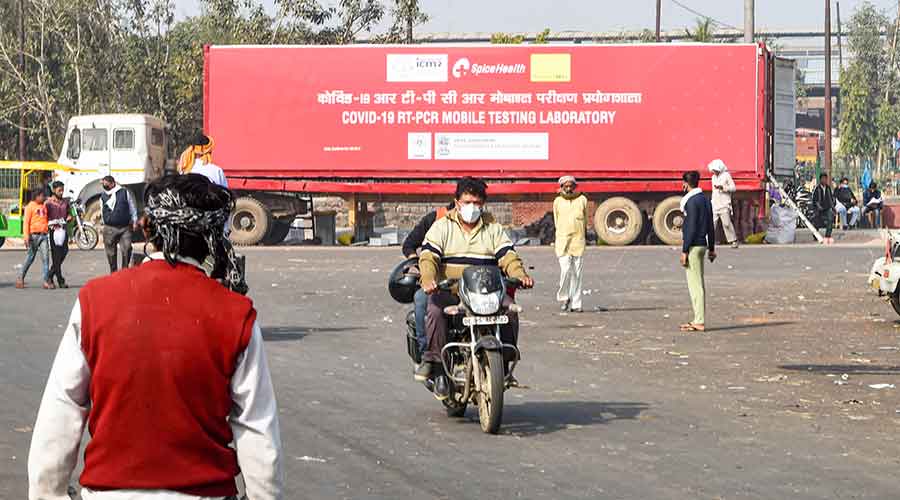India’s health research agency has planned a third nationwide survey during January to determine the proportions of people infected by the novel coronavirus amid speculation whether the infections themselves have slowed down the epidemic.
The survey under discussion between Indian Council of Medical Research officials and epidemiology specialists is likely to adopt the same methodology as the earlier surveys and look for antibodies to the coronavirus in 400 households each from across 70 districts.
The fresh exercise will for the first time specifically look for antibodies that could indicate possible protection from future infections from SARS-CoV-2, the microbe that causes the coronavirus disease, researchers familiar with the discussions have told The Telegraph.
Health officials and researchers guiding India’s Covid-19 vaccination strategies have suggested earlier that people who are already protected through antibodies might not need to be vaccinated although this is an idea still under discussion.
The earlier surveys had suggested that the number of people unknowingly infected by the coronavirus had increased over 10-fold within three months from around 6.4 million in early May to around 74.3 million in early August.
Scientists said these were closer to the true burden of infections and not the lab-confirmed cases — less than 50,000 in early May and less than 2.5 million in early August.
But India’s epidemic has shrunk since mid-September with a near-steady fall in the number of daily new cases in many states and a steady reduction in the number of active cases from over a million in mid-September to around 363,000 on Friday.
“More than four months have elapsed since the last snapshot — we again want to find out what proportions of Indians have already been infected ,” D.C.S. Reddy, a senior community medicine specialist and member of the ICMR’s Covid-19 epidemiology and surveillance group, told this newspaper.
The decline in the new infections has prompted some experts to suggest that the epidemic is slowing down because so many people have already been infected that they themselves serve as barriers to the spread of the virus.
Some researchers have cited epidemiological calculations to suggest that when the proportion of infected people crosses 60 per cent, a phenomenon called herd immunity protection sets in, and the epidemic itself stops, giving way to a smaller trickle of infections.
“We currently see uneven patterns of infections in different states — through this new survey, we’ll try determine whether there is, as predicted, a correlation between high infection prevalence rates and fewer infections,” Reddy said.
An independent single-city survey in Pune — examining different areas of the city — had last month turned up evidence of such a correlation. Areas with infection prevalence levels of over 60 per cent had significantly fewer new infections than areas with lower infection prevalence levels.
The scientists have also proposed that the third survey should also look for antibodies specific to the SARS-CoV-2 spike protein that the virus uses to enter human cells. The presence of these spike protein antibodies is indicative of protection from future infections.
The second survey in August had revealed prevalence differences across urban and rural areas — 15.6 per cent in urban slum areas, 8.2 per cent in urban non-slum areas, and 4.4 per cent in rural areas.











